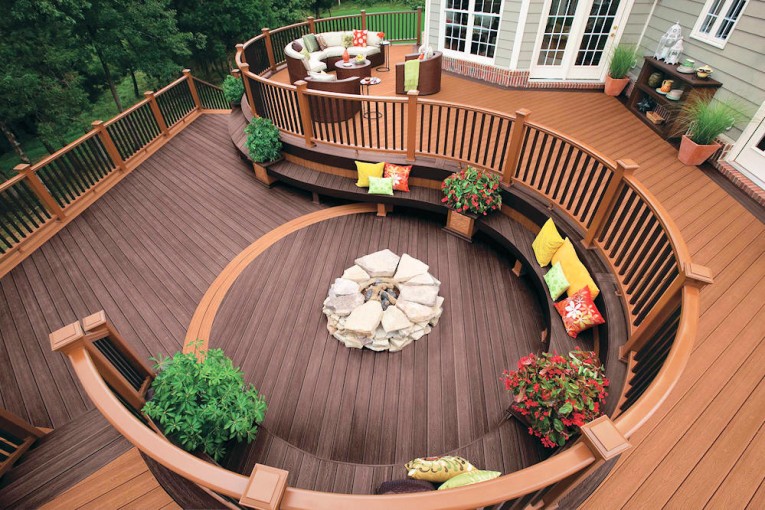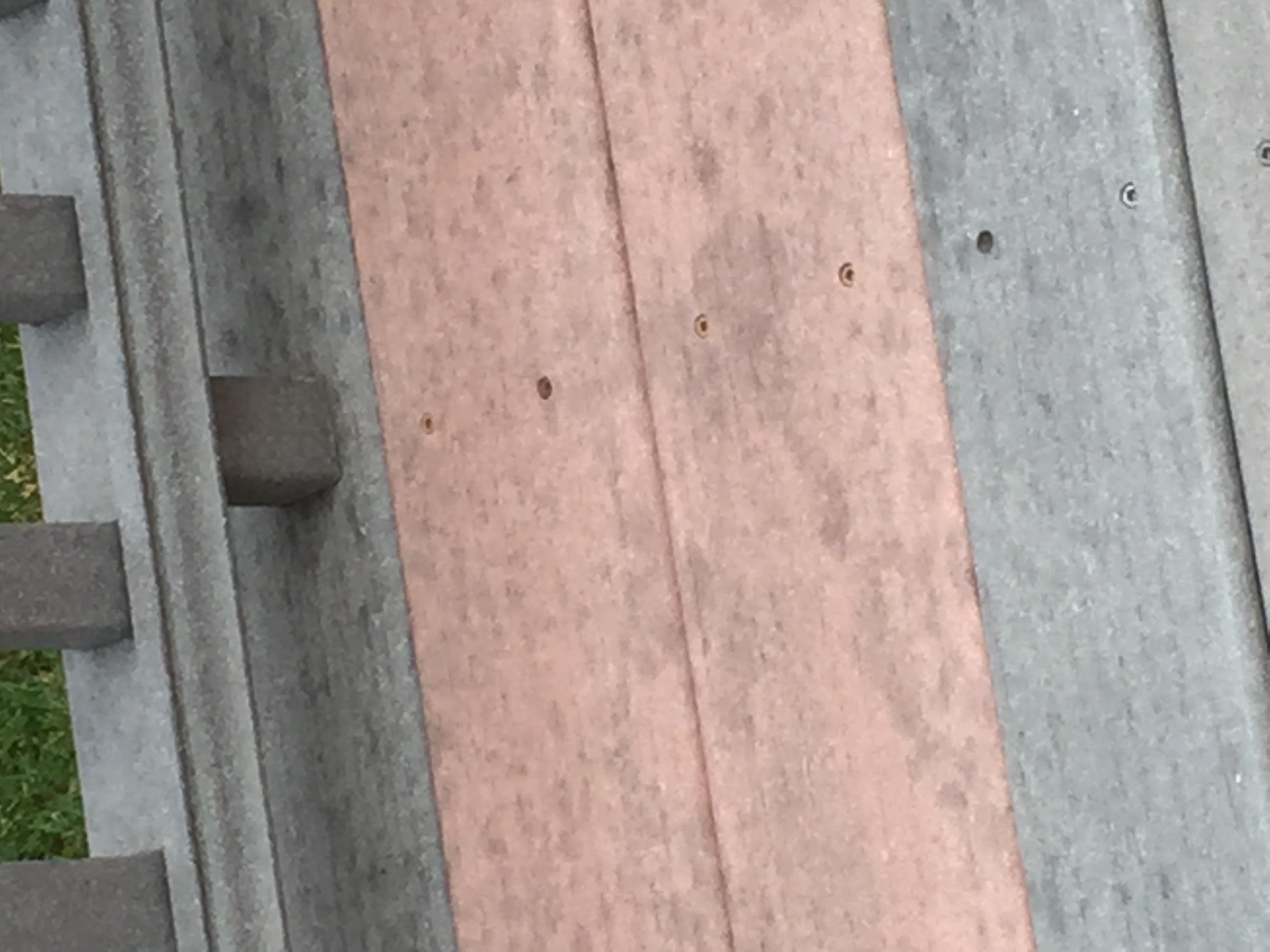Composite Deck Cleaners

How do you clean composite decks?
We use a mild detergent in our lower pressure system this will remove mold and mildew without cutting or marring the surface of a composite deck the way high pressure can. Because composite decks are made of different materials (PVC, wood, plastic) each surface will react differently to spills, mold mildew and staining. For this reason we cannot, guarantee the removal of every stain but rest assured that if it can be cleaned (safely) we will make every effort to do so.
Do you seal compsite decks?
Before manufacturers created smaller spindle pieces for railings, we found the floor to be composite and the railings were wooden. We found that sealing a composite deck was beneficial because they were made with wood fibers. In fact, not sealing them could cause the composite to degrade and become brittle. Sealing both the composite deck and the wood railing is also less expensive because the floor will not need to be tarped off.
Some customers have expressed concern about this service because composite decks are marketed as “maintenance free” but after we discuss our official mitigation experience and service, they decide to have their composite sealed.
Do you stain composite decks?
Many of the older composite materials had poor UV protection and have faded dramatically over time. For over four years we have stained composite decks that have succumbed to the sun. Staining these decks has breathed life back and restored their original luster. Additionally, each Trex material had a name specific to its color; the people working with Trex to mitigate the lawsuit have created colors that match precisely the original color of the Trex deck. With that being said, newer composite materials that have higher UV protection and are not prone to the same symptoms of fading and brittleness of earlier manufactured composite materials do not require sealing or staining.
What is an affordable composite deck maintenance plan?
Many composite products are apt to attract mold and mildew growth. This growth on many of the composite colors becomes an eyesore. Many of our customers have asked us to set them up on a maintenance plan where we come out several times per year to clean their deck. This ensures that their deck is always looking its best and is a smart savings versus a once a year visit.
Should I use bleach to clean my composite deck?
The Environmental Protection Agency (EPA) and the Occupational Safety & Health Administration (OSHA) do not recommend chlorine bleach for mold (mildew is a species of mold) remediation on porous surfaces like composite decking.
In addition, chlorine bleach products are highly corrosive to any metal including structural connectors or fasteners (screws) holding the deck together. It shortens the life of the pressure treated lumber supporting the deck. This could lead to liability issues for the owner of the property and any company who recommends its use.

We clean Trex, Evergrain, Timbertech and other brands of composite decks. “Composite” deck products are made from a combination of wood and plastic fibers reclaimed or recycled from various resources.
As a result of a lawsuit against Trex®, Trex hired Environmental Solutions Association (ESA), the nation’s premier, membership-based training organization to mitigate problems. Locally, ESA hired WashMyDeck.Com based on our experience in reducing mold and mildew and our research about restoring older composite decks.
